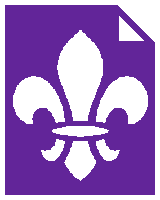Democracy: The Right to Complain
Scouts Canada’s Chief Commissioner offers his understanding of democracy
Some background: Scouts Canada is governed by a non-democratic circular appointment system. The Voting Members, the 90 or so people who select the next Board of Governors, consist of the current Board and people they appointed. Ordinary Members, like you and me, never vote and have no control over who sits on the Board or what they decide. I discuss this in more detail in my article "How Scouts Canada is Governed".
Scouter Ted Claxton and I asked Scouts Canada's leadership to justify this governance structure which gives no voice to Scouts Canada's membership. Mike Scott, Chief Commissioner, responded by stating that Scouts Canada is democratic because people are able to speak out at forums such as this conference session.
There we have it, straight from the Chief Commissioner: Democracy is having an opportunity to complain.
Others present at the session had a different perspective. The Chief Commissioner was loudly booed for his remarks. Scouts Canada's membership knows that in a democracy, the people control the government. They do not just "provide feedback" or have the opportunity to complain. The ability to vote in an open, contested election is the central act of democracy.
While Scouts Canada leadership refuses to seek an electoral mandate, the members are voting with their feet. Between 2002 and 2003, one-quarter of Scouts Canada's adult membership left the association. Scouts Canada's volunteers do not accept the current system where a non-democratic Board makes policy and expects the membership to obey.
A democratically-elected Board could be had for just $2 per member by using a long-proven post ballot election, as I describe in "A Proposal for a Democratic Scouts Canada".
A democratic Scouts Canada with an elected Board would give Scouters a feeling of ownership of their association rather than the current feeling of alienation. It would give the Board the moral authority which would cause Scouters to implement the Board's decisions instead of ignoring them, as is often the case today. The vote is the key to turning around Scouts Canada's membership loss problem.
The choice is stark: Scouts Canada is sailing rapidly towards stringent financial circumstances, the sale of its Scout camps, and its final collapse. Democracy is the way to turn this around.
